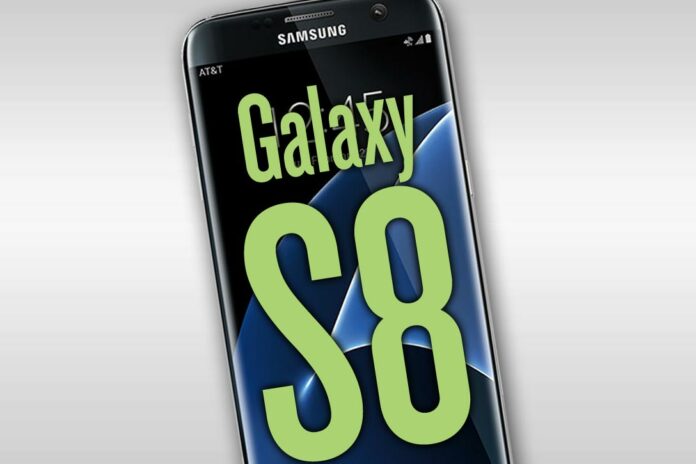After months of speculation and rumors about creating a personal digital assistant that will compete with Apple’s Siri, Samsung is now sharing more about the technology behind its Bixby voice-activated “intelligent interface.”
Set to debut March 29 when Samsung is expected to unveil its latest Galaxy S8 flagship smartphone models, Bixby will use artificial intelligence and a new side-mounted button on the S8 handsets to allow users to explore its capabilities, InJong Rhee, executive vice president and the head of research and development for software and services at Samsung, wrote in a recent post on the company’s website.
“Bixby will be our first step on a journey to completely open up new ways of interacting with your phone,” wrote Rhee. “At the launch of the Galaxy S8, a subset of preinstalled applications will be Bixby-enabled,” with additional applications that work with Bixby to come in the future. “Our plan is to eventually release a [software developers kit] to enable third-party developers to make their applications and services Bixby-enabled easily.”
The idea behind Bixby is to reinvent Samsung devices so they learn and adapt to the behaviors of their users, rather than requiring users to adapt to the devices, wrote Rhee. That means being able to properly and appropriately respond to voice commands to provide functions for users, rather than users having to search through deep and often complicated command and function menus to operate their devices, he wrote.
“When an application becomes Bixby-enabled, Bixby will be able to support almost every task that the application is capable of performing using the conventional interface (i.e. touch commands),” wrote Rhee. “Most existing agents currently support only a few selected tasks for an application and therefore confuse users about what works or what doesn’t work by voice command.”
With Bixby’s artificial intelligence engine, Samsung devices will provide responses that are more predictable for users and will better understand the context of user requests, wrote Rhee. “Bixby will allow users to weave various modes of interactions including touch or voice at any context of the application, whichever they feel is most comfortable and intuitive.”
Bixby will also include what Samsung calls “cognitive tolerance,” or the ability to understand commands even when given incomplete information by users, he wrote. In such a situation, Bixby will “execute the commanded task to the best of its knowledge, and then will prompt users to provide more information and take the execution of the task in piecemeal,” making the interface more natural and easier to use.
While Bixby will debut in the new Galaxy S8 smartphones, not all of its capabilities will be ready at launch, wrote Rhee. “We do have a bold vision of revolutionizing the human-to-machine interface, but that vision won’t be realized overnight. Ambition takes time.”
In the coming months, Bixby will also be deployed by Samsung in many of the company’s other products, from home appliances such as air conditioners to televisions and more, giving users new ways to control their devices.
“Since Bixby will be implemented in the cloud, as long as a device has an internet connection and simple circuitry to receive voice inputs, it will be able to connect with Bixby,” wrote Rhee. “As the Bixby ecosystem grows, we believe Bixby will evolve from a smartphone interface to an interface for your life.”
The Bixby changes will, however, require users to learn new ways of interacting with their devices, wrote Rhee. To encourage that, the Bixby interface has been designed to reduce user anxieties about the changes by making the new experience “significantly more rewarding than the existing [touch] interface” through more seamless and intuitive processes.
Bixby will be operated through a side-mounted button on the S8 handsets, rather than through a front-mounted button as on previous Galaxy phones.
“Confusion around activating a voice interface is a barrier we have removed to make it feel easier and more comfortable to give commands,” he wrote. “For example, instead of taking multiple steps to make a call—turning on and unlocking the phone, looking for the phone application, clicking on the contact bar to search for the person that you’re trying to call and pressing the phone icon to start dialing—you will be able to do all these steps with one push of the Bixby button and a simple command.”
Samsung has been eyeing the use of artificial intelligence in its devices for some time, according to a November 2016 eWEEK report. In a response to an inquiry at that time, Samsung confirmed that it would begin integrating AI into its products in the future. The announcement came after the company’s
Galaxy Note7 smartphone disaster, when it was forced to recall all of its approximately 2.5 million Galaxy Note7 phablets due to fire and explosion issues around the world.
For Samsung, moving on to the new Galaxy S8 smartphones likely can’t come quickly enough after the failed Note7 phablet fiasco.
Samsung’s interest in AI was deepened in October 2016 when the company acquired Viv Labs, an artificial intelligence company started by the creators of Apple’s Siri digital assistant, to bolster AI capabilities in its smartphones and other consumer products. Viv Labs’ open AI platform lets third-party developers use and build conversational assistants and integrate a natural language-based interface into applications and services, which can extend mobile devices and services for users.
Samsung’s own previous personal assistant product, S-voice, never captured as much attention from smartphone buyers as did Apple’s Siri personal assistant.
